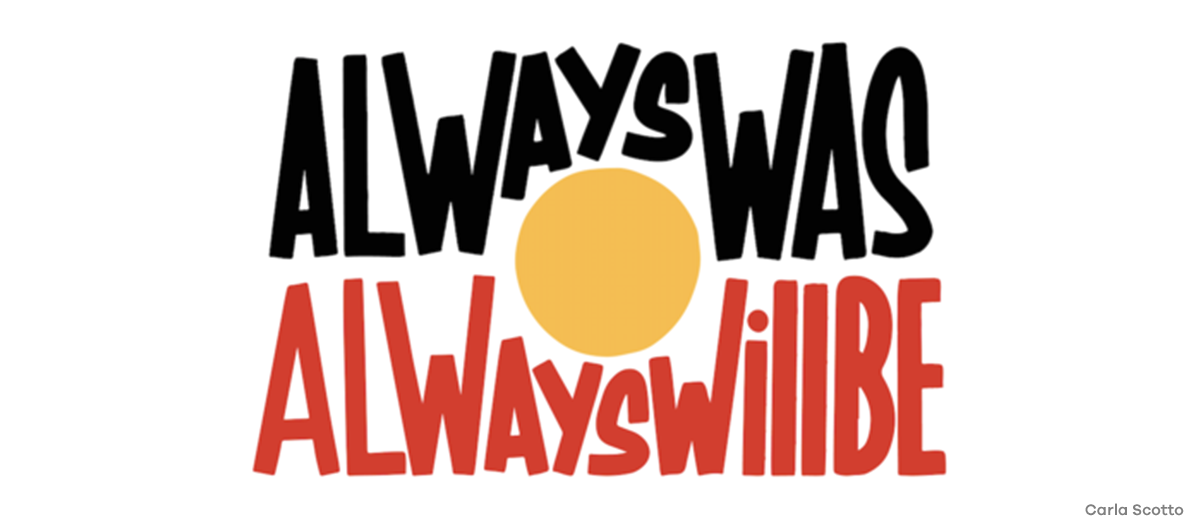Posted 23 Jan

In SEVEN SIBLINGS FROM THE FUTURE we step into 2050 and imagine what the future could look like. As we watch the public sentiment around 26 January continue to change in 2020, we have been thinking about what this date might be like in 2050. How will the way we remember the past change? And what might it be like for Aboriginal people?
In the lead up to the weekend, we have asked some of our contributors how they imagine Australia will be in thirty years. Here’s what they had to say:
“The future of Australia will have First Nations people in key decision-making roles that determine and shape their own outcomes as well as drawing on their continual knowledge of the land and to restore the climate of Australia.”
Rachael Sarra
Goreng Goreng Nation
Managing Director & Artist
***
“To meet the challenges Australia faces, now and into the future, as the driest inhabited continent it must allow for, the celebration, acknowledgement and incorporation of the oldest living culture and science on the planet – Aboriginal and Torres Strait Islander Knowledge. Always was always will be.”
Bradley Moggridge
Kamilaroi Nation
University of Canberra
***
“I wish for all people to see the First Nations peoples of Australia as valued, knowledgeable and wise people, whose culture should be explored, embraced and celebrated in education, communities and people across this nation and the world.”
Mickey Kumatpi O’Brien
Kaurna Nation
Facilitator of Learning
***
“’Always was always will be Aboriginal land’, in 2050 First Nations will still be here as we have been since the first sunrise. In the present we are recovering from a burnt and devastated continent; a billion animals have died in the bushfires of the summer of 2020 and native bush which sustains our native animals has been badly damaged. We are in the middle of recovery, as we face a future- climate change. In the past First Nations had an ancient plan which successfully enabled coexistence with the natural world, it is a plan which will secure our First Nations futures to and beyond 2050.”
Professor Irene Watson
Tanganekald, Meintangk & Boandik Nations
UniSA PVC Aboriginal Leadership and Strategy, Professor of Law
***
“In the future we will acknowledge Aboriginal sovereignty and our shared histories, we embrace truth telling, and we move forward together.”
Elizabeth Close
Pitjantjatjara & Yankunyjatjara Nations
Aboriginal Artist
***
“My vision for the future of Australia is our emphasis is placed broader towards addressing disadvantage and inter-generational trauma and truth-telling in our communities, not having a narrow view of Indigneous affairs. Change that will empower and have an impact.”
Kyran Dixon
Kaurna & Narungga Nations
2018 Young South Australian of the Year
***
“I hope that in the future we are in alignment with the natural lore of this country far more. We take time for each other and our pursuits are less about personal gain, and more about the good of the people, our home, and our country. Community comes back into play and we create a space where giving to the world is far more a priority than constantly taking from it.”
Jimblah
Larrakia Nation
Blak Visionary
***
“Working in heritage as an Indigenous person involves continuously having to question whether you have the emotional capacity to fight issues. My vision feels more like a fantasy because I do not believe we will ever make it there. I truly hope that Indigenous people working in heritage will be able to do so without feeling like we have to balance the wants of non-Indigenous people over our human rights. I envision a world where we can fight for our beliefs without fear of being chastised.”
Jacinta Koolmatrie
Adnyamathanha & Ngarrindjeri Nations
Archaeologist
***
“There’s no way Australia Day will be celebrated on Jan 26, and it’s likely that there won’t be a separate NAIDOC Week and Australia Day, but one event that celebrates Aboriginal people and the nations achievements as they align with social justice, human rights and conservation accomplishments.
So people who win Australian of the Year Awards in future will do so for supporting refugees and asylum seekers to settle, conserving tracts of country and coast, contributing to sustainable food production, and the creation of ecofriendly technology.
Aboriginal knowledge will be highly regarded, particularly as Aboriginal people will have demonstrated ways of survival through the initial hit of climate change and ways to bring country back to life.”
Tilly Tjala Thomas
Nukunu Nation
Singer songwriter
Dr Jared Thomas
Nukunu Nation
Curator Aboriginal and Torres Strait Islander Art and Material Culture, South Australian Museum & Author
***
“Moving forward we need to acknowledge and comprehend the complex intersections of First Nations communities in order to address the social inequities that continue to exist.”
Dearna Newchurch
Kaurna & Narungga Nations
House of Feede
***
“I look forward to an inclusive national day of remembrance and celebration, where recognition of our shared history, both painful and proud, can be acknowledged and respected by all Australians. Like climate change denial, denial of Aboriginal sovereignty will be a thing of the past, and our remarkable knowledge, strength and culture will be a source of pride for all of us.”
Becci Love
Unknown Nation (WA)
Museum Operations Coordinator, MOD.
***
“Australia Day symbolises and marks a long history of dispossession and trauma for Aboriginal and Torres Strait Islanders. In the future, I hope to see that date changed, and the nation will have acknowledged the past and present injustices. Australia will be inclusive to all.”
Kiah Buckskin-James
Narrungga, Wirangu and Southern Arrente Nations
Exhibitions Coordinator, MOD.